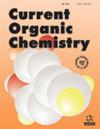Proline-based Organocatalyst for the Synthesis of Arylidene Benzofuranone Intermediates Enabling the Construction of Aurone-derived Azadienes
IF 2.1
3区 化学
Q3 CHEMISTRY, ORGANIC
引用次数: 0
Abstract
Organocatalysis has been recognized as a part of chemical research for a long time, and it gained significant attention in catalysis in recent decades. Amine catalyst is a substantial type of organocatalysis, and it is successively employed for the activation of carbonyl compounds. This manuscript delves into the exploration of a proline-based organocatalyst for the synthesis of arylidene benzofuranone intermediates, a critical step that facilitates the subsequent construction of aurone-derived azadienes. In this work, we successfully reported the synthesis of arylidene benzofuranone intermediates through Aldol condensation of benzofuranone with different aldehydes enabled by proline-derived organic catalysts. To achieve this strategy, six examples of amine organocatalysts (A1-A6) were evaluated to showcase the optimal catalyst for this transformation. Moreover, the arylidene benzofuranone intermediates were further employed for the synthesis of interesting aurone-derived azadiene substrates through its reaction with TsNH2. Notably, the using of organocatalyst A6 resulted in the delivery of the product with the best yield (94% isolated yield). Under the optimized conditions, different aromatic and heterocyclic containing aldehydes were effectively tolerated to generate the corresponding arylidene benzofuranone intermediates, which further converted to the azadiene products in high to excellent yield. The claimed structures were confirmed by the spectral analysis.基于脯氨酸的有机催化剂用于合成芳基苯并呋喃酮中间体,从而构建由橙黄酮衍生的偶氮染料
有机催化被认为是化学研究的一部分由来已久,并在近几十年的催化研究中获得了极大的关注。胺催化剂是有机催化的一个重要类型,它先后被用于活化羰基化合物。本手稿深入探讨了一种用于合成芳基苯并呋喃酮中间体的脯氨酸基有机催化剂,该中间体是后续构建醛基偶氮苯的关键步骤。在这项工作中,我们成功报道了在脯氨酸衍生有机催化剂的作用下,通过苯并呋喃酮与不同醛的醛醇缩合合成芳基苯并呋喃酮中间体的过程。为了实现这一策略,我们评估了六种胺类有机催化剂(A1-A6),以展示这一转化的最佳催化剂。此外,通过与 TsNH2 反应,亚芳基苯并呋喃酮中间体被进一步用于合成有趣的醛基氮二烯底物。值得注意的是,使用有机催化剂 A6 得到的产物收率最高(分离收率 94%)。在优化的条件下,不同的芳香族和含杂环的醛类都能有效地生成相应的亚芳基苯并呋喃酮中间体,这些中间体进一步转化为高产率至优产率的偶氮二烯产品。光谱分析证实了上述结构。
本文章由计算机程序翻译,如有差异,请以英文原文为准。
求助全文
约1分钟内获得全文
求助全文
来源期刊

Current Organic Chemistry
化学-有机化学
CiteScore
3.70
自引率
7.70%
发文量
76
审稿时长
1 months
期刊介绍:
Current Organic Chemistry aims to provide in-depth/mini reviews on the current progress in various fields related to organic chemistry including bioorganic chemistry, organo-metallic chemistry, asymmetric synthesis, heterocyclic chemistry, natural product chemistry, catalytic and green chemistry, suitable aspects of medicinal chemistry and polymer chemistry, as well as analytical methods in organic chemistry. The frontier reviews provide the current state of knowledge in these fields and are written by chosen experts who are internationally known for their eminent research contributions. The Journal also accepts high quality research papers focusing on hot topics, highlights and letters besides thematic issues in these fields. Current Organic Chemistry should prove to be of great interest to organic chemists in academia and industry, who wish to keep abreast with recent developments in key fields of organic chemistry.
 求助内容:
求助内容: 应助结果提醒方式:
应助结果提醒方式:


